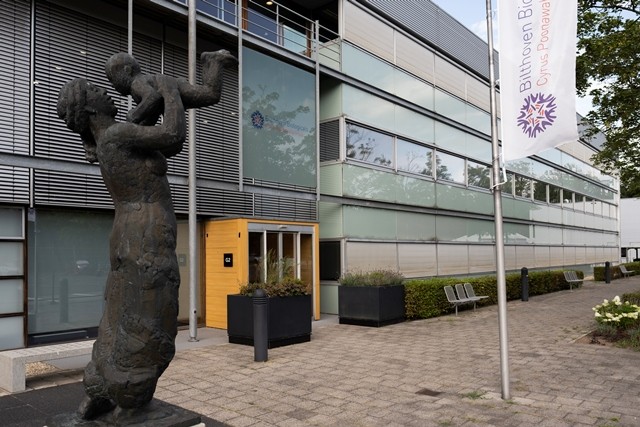
Bilthoven – “Actually, it’s a very beautiful story”, says Zandbergen (51 yr.). “If you read newspapers on a regular basis, you probably know the name of our Indian owner: Cyrus Poonawalla. He built Serum Institute of India, a successful vaccine conglomerate. He learned his trade at at our location. In the 1970’s, the Dutch government took part in an exchange programme initiated by WHO, inviting students from developing nations to learn how to develop vaccines. This way, we achieved using this knowledge by developing nations.”
In 2012, Poonawalla acquired the Dutch Vaccine Institute (NVI), located at the RIVM site.
Amongst other products, the Dutch government produced DTP vaccines for the National Vaccination Programme.
Zandbergen: “ Poonawalla continued producing DTP vaccines, but at the same time he focused NVI towards large scale production of polio vaccine, thereby contributing to the global eradication of this disease. As we produce large volumes, we can keep the cost per unit down. Otherwise it is simply not affordable to vaccinate all populations in developing nations.”
The eradication programme proved succesful. At the start of the programme in 1988, there were 350.000 cases of polio worldwide. Now, this has shrunk to less than 100 reported cases. Nevertheless, we have to keep vaccinating. ”We produce a vaccine containing IPV, which is a dead virus. Many people were vaccinated with OPV, which is a weakened polio virus. This is cheaper yet than IPV, but carries the possibility of the disease flaring up. We still have millions of vaccines to produce, before we can really get rid of polio worldwide. We at Bilhoven can take pride in contributing to this effort.”
30 million polio vaccines for Unicef from Bilthoven
Polio – also known as child paralysis – is a serious disease that can result in paralysis of all muscles. The polio virus spreads with relative ease and can result in epidemics. Since the end of the 1950’s, polio vaccine is added to The Dutch Vaccination Programme in the form of a DTP vaccination. Nevertheless, we still counted 71 cases of polio in 1992. In 1988, WHO started a vaccination programme to eradicate polio globally. This programme, vaccinating 60 million people a year, is carried out by UNICEF. Half of these vaccines are supplied by Bilthoven Biologicals.
This article was written by Julie Houben, independent journalist, and was published in different local newspapers, August 2019.
| Share |








|






